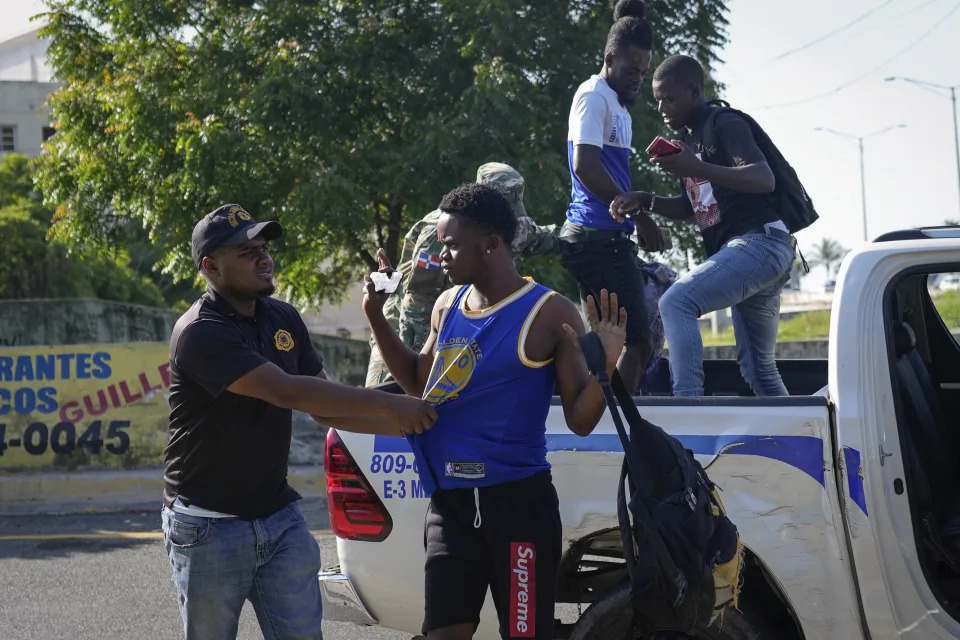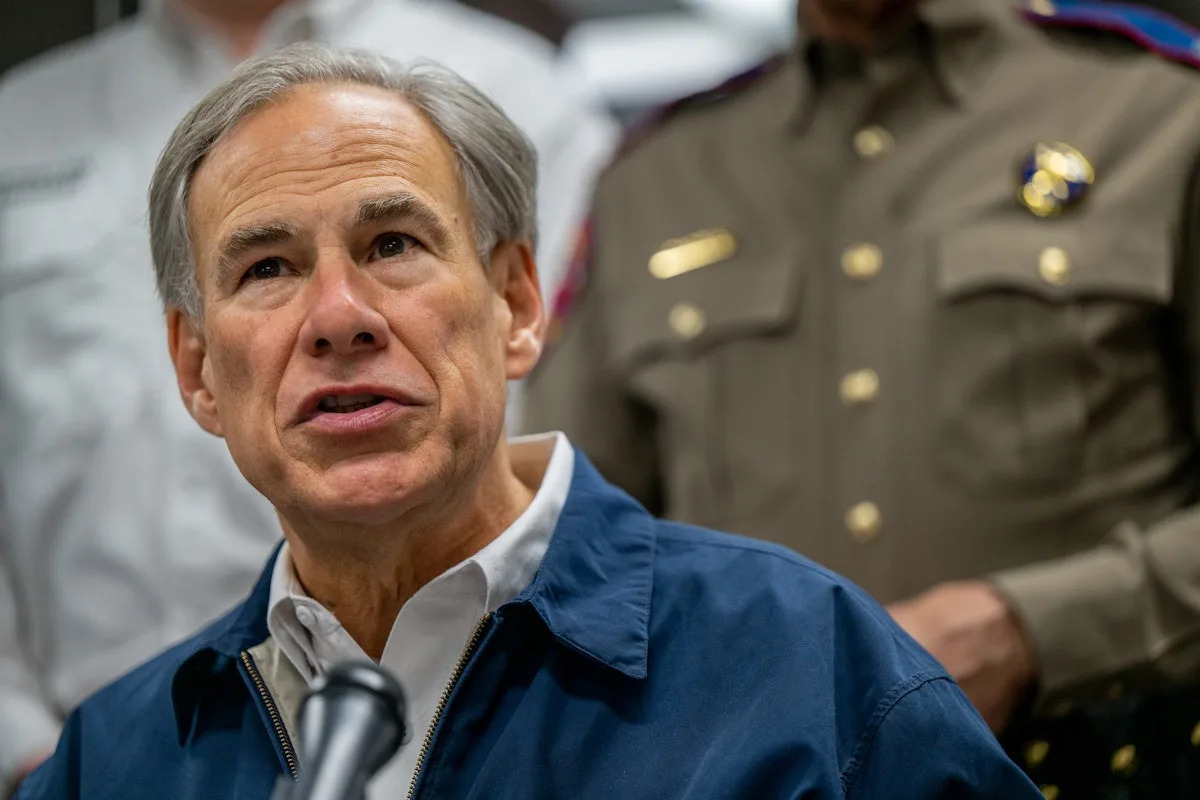Reuters
Updated Fri, May 17, 2024
NAIROBI (Reuters) -Kenyan lawyers have moved to block the country's planned deployment of police to Haiti, a court filing showed, days before officers are expected to arrive in the Caribbean nation to tackle spiralling violence there.
The High Court on Friday ordered the lawsuit be served to top government officials and that the case be heard on June 12, it said in a statement.
Responding to Haiti's appeal for assistance, Kenya offered last July to send 1,000 officers to Haiti to help tackle a worsening security crisis where escalating gang control has plunged millions into a humanitarian crisis.
However, Kenya's High Court ruled in January that the police officers could not be deployed to Haiti in the absence of a "reciprocal arrangement" with the host government.
Kenyan President William Ruto then signed a security deal with Haiti's then-prime minister Ariel Henry in March which Nairobi hoped would satisfy the court's objections and allow the deployment to go ahead.
Lawyers Ekuru Aukot and Miruru Waweru, who lead an opposition party in Kenya called Thirdway Alliance, said in their application to the High Court on Thursday that respondents including Ruto and the police had blatantly disobeyed the court order in signing the reciprocal instrument with Haiti.
They said the government would be in contempt of court if it pressed ahead with the deployment.
"The applicants are reliably informed that the impugned deployment may be done any time from now," the lawyers said in their application.
Ruto's spokesperson did not immediately respond to a request for comment on the application.
Kenya's government said in March it was pausing the deployment following Henry's resignation. But Ruto said later that the swearing-in of a transition council in Haiti on April 25 had addressed concerns about a power vacuum there and that Kenya was now discussing how to proceed with its deployment.
Last week, the U.S. military's Southern Command said civilian contractors had arrived in Haiti to build living quarters for the Kenyan-led force.
Jamaica, the Bahamas, Barbados, Benin, Chad and Bangladesh have also pledged personnel to the force.
Foreign governments have been reluctant to take part in the mission. Many Haitians have also been wary of international interventions after previous U.N. missions left behind a devastating cholera epidemic and sex abuse scandals.
(Reporting by Humphrey Malalo; writing by George Obulutsa; Editing by Hereward Holland, Clarence Fernandez and Gareth Jones)
‘The gangs are in charge’: Haiti’s outgunned police fight a desperate rear defence
Etienne Côté-Paluck in Port-au-Prince and Tom Phillips
Thu, May 16, 2024

Haitian police patrol the capital, Port-au-Prince. The police union says 17 officers have been killed and ‘many’ wounded in the first four months of 2024.Photograph: Mentor David Lorens/EPA
Nine hours and countless bullets after gunmen began bombarding Stanley’s police station in Port-au-Prince, the twentysomething officer started fearing he would not make it out alive.
“If you don’t hear from me, it’s because I’m dead,” he wrote on a family WhatsApp group by way of goodbye.
The officer’s sister shivered as she read her sibling’s parting text and – when he didn’t answer her messages – rang one of his closest friends desperate for news. “I’m going out of my mind,” she sobbed.
Contrary to his prediction, Stanley* did survive the recent assault on his fortress-like base but was left badly shaken. “What scared me the most was the idea of a needless death – that I might die and it would change nothing,” the police officer said as heavily armed gangs continued to sow terror in Haiti’s capital despite the creation of a transitional government that is supposed to lead the country out of its latest crisis.
Other members of Haiti’s embattled national police force have not been so lucky in the face of a coordinated gang insurrection that began in late February and has plunged Port-au-Prince into anarchy and forced the prime minister to resign.
Lionel Lazarre, the spokesperson for Haiti’s police union Synapoha, said 17 officers had been killed and “many” wounded – mostly by gunshots – in the first four months of this year.
In the worst attack, five officers were killed when armed criminals stormed a police station in the city’s north on 29 February. Videos of the mutilated victims spread on social media, the newspaper Le Nouvelliste reported. In one, it wrote, “the corpse of a policeman is seen lying on a wheelbarrow, his uniform soaked in blood”. Another shows an officer being beheaded. In a brazen show of defiance, criminals later returned to the station to demolish it with a Chinese front-end loader.
“It’s clear the [previous] government failed in its security mission. Everyone says the police are overwhelmed by the recent events,” said Lazarre. “There are neighbourhoods we used to go into easily but no longer can.”
Related: Guns and weapons trafficked from US fueling Haiti gang violence
William O’Neill, the UN’s top expert on human rights in Haiti, voiced amazement that Haiti’s outgunned and under-resourced police force had avoided being completely overpowered by criminals boasting a military-grade arsenal, largely smuggled in from the US. “It’s a minor miracle they’re still hanging on. I don’t know how they do it,” said O’Neill, who believes Haiti needs a 5,000-strong international security force to help the police restore order.
A UN-backed “multinational security support mission”, reportedly led by 1,000 Kenyan troops, is expected to be deployed to Haiti in the coming weeks to bolster the fight against the gangs although questions remain over how the force will be funded.
Part of the answer to how Haitian police are clinging on lies in the mettle of officers such as Stanley who are on the frontline of a lopsided struggle against gangs that run about 80% of the capital. For their troubles such officers generally receive no more than $100 (£79) a week.
That measly salary earns them a front row seat to a security collapse that has seen more than 2,500 people killed or injured this year alone and forced the airport and seaport to close.
Last weekend, another 4,500 people were forced to flee their homes in the capital, according to the UN migration agency, taking the number of people displaced by the chaos to about 100,000.
“The gangs are in charge,” admitted one former senior security official who believed things were so dire combat drones should be imported to eliminate gang leaders from above, “like in Afghanistan”.
A spokesperson for another police union, SPNH-17, this week called for the head of Haiti’s national police, Frantz Elbé, to resign over the “critical and catastrophic” situation after another attack on a police station, accusing top police officials of being complicit with the gangs.
Peter, another Port-au-Prince cop in his mid-20s, recalled being ambushed during a recent patrol by fighters with assault rifles. “It seemed like bullets were coming from everywhere at the same time,” said the police officer, who fled his vehicle with three colleagues and took shelter beside walls and street lamps.
The officers managed to repel the assailants after a long shootout but one was injured and taken to hospital. After the gun battle, Peter returned to his bullet-riddled vehicle and continued patrolling but he spent the next fortnight off work, rattled by the near-death experience.
“I realised it could have been me who was injured or even killed,” he said. “Thank God it wasn’t me that day … I still haven’t told my mother.”
Lazarre admitted Haiti’s national police force was woefully ill-equipped for its battle against outlaws who flaunt their increasingly sophisticated arsenal in slick social media videos resembling those posted by Mexican cartels.
“If the police had more weapons they could respond better to the criminals,” said Lazarre. “The police is about to celebrate its 29th anniversary but they don’t even have one or two helicopters to fight the current battle.”
Peter said a lack of basic equipment meant some colleagues bought their own bulletproof vests or armour plates, shipping them to Haiti with the logistics company DHL. In the last three years, more than 3,000 officers have left their jobs as the security situation unravelled after the 2021 murder of President Jovenel Moïse. Many have abandoned the country altogether.
Haiti’s police have faced criticism for disappearing from the streets of Port-au-Prince since the rebellion began and abandoning citizens to their own fate. But the union spokesperson said officers were doing their best to fight back, “even though times are tough”.
Lazarre called for more “offensive action” to regain the initiative from armed groups. “When you’re in a football team, you can’t just defend. You have to attack too … You can’t play a 90-minute game just defending. Eventually, you’ll let in a goal.”
Stanley and Peter said they were determined to fight on and were proud to be part of Haiti’s police force, despite the dangers. “We are the armed arm of the citizens. We are their shield,” said Stanley.
But in a city now almost entirely controlled by criminals, the shadow of death was never far away, said Peter, who is his household’s sole breadwinner. “And when a policeman dies in service what’s left for the family?” he asked.
*Names have been changed to protect their identities
Haiti's crisis rises to the forefront of elections in neighboring Dominican Republic
MARTÍN ADAMES ALCÁNTARA and MEGAN JANETSKY
Thu, May 16, 2024
VERON, Dominican Republic (AP) — As soaring violence and political turmoil grip neighboring Haiti, the Dominican Republic will hold elections Sunday that have been defined by calls for more crackdowns on migrants and finishing a border wall dividing the countries.
Politics in the two Caribbean nations sharing the island of Hispaniola have long been intertwined. Haiti’s spiral into chaos in recent years has coincided with a harsh crackdown by its Dominican neighbor.
President Luis Abinader, a clear frontrunner race as he seeks reelection in the presidential race, has begun to build a Trump-like border wall along Haiti’s border and carried out mass deportations of 175,000 Haitians just last year. Dominicans also will be choosing members of Congress.
“We will continue to deport everyone who is illegal from any country,” Abinader said in a debate in late April. “A society that doesn’t do that is chaos and anarchy.”
Abinader, who has also pledged to strengthen the nation’s economy, said he would finish construction of the border wall with Haiti. His closest competitors – former President Leonel Fernández and Santiago Mayor Abel Martínez – have echoed his calls to ramp up the actions against migration.
The crackdown has marked an intensification of longtime policies by the Dominican government that human rights groups have alleged are discriminatory and put vulnerable people at risk.
Fernández, of the People’s Force party, said Dominicans were “afraid to go out into the streets" despite Abinader's policies. He also said he would continue crackdowns while respecting human rights.
Dominican voters seem to be rewarding Abinader for the crackdown, with the incumbent favored to get more than the 50% support needed to win in the first round of voting. If no candidate reaches the 50% mark a runoff between the top vote-getters would be held.
Ana Pagán, a 34-year-old supervisor at a communications company in the country's capital of Santo Domingo, said she approved of the border wall being built and the measures taken by the government.
“No foreigner who wants to stay here in the Dominican Republic should do so illegally, and that's what (the government) has said," she said.
However, Pagán said the wall doesn't solve all of the country's issues, and she referred to what have been the other key electoral issues for Dominicans: crime and endemic corruption. Pagán said many of the country's security problems come from corrupt officials allowing smuggling and other crimes.
While Dominican voters want continued a government crackdown on migrants, many of the hundreds of thousands of Haitians in the Dominican Republic live in fear.
Haiti, long stricken by tragedy, has been in a downward spiral since the assassination of President Jovenel Moïse in 2021. Gangs have warred for power, injecting terror and turmoil into the lives of many in the Caribbean nation.
In recent weeks – following the prime minister's resignation – a transition council tasked with choosing Haiti's new leaders has offered a small dose of hope of easing some of the country's many woes.
The ongoing violence has forced many to flee their homes and seek refuge in places like the Dominican Republic and the United States. The Dominican government's policies have stirred concerns among both newly arrived migrants and Haitians that have long called the Dominican Republic home.
Yani Rimpel, a 35-year-old Haitian businesswoman in the eastern city of Veron, has lived in the country for 20 years. She told the AP she’s never seen such uncertainty among Haitian communities, something she attributes to Abinader’s migratory policy.
Two weeks ago, she said immigration agents broke into her house at dawn with heavily armed soldiers in tow. She said they searched the house and stole cash she saved up to buy and sell merchandise, leaving her without any means to support herself.
“If (Abinader) stays in power, I can’t live here. I’m going to have to move back to my house in Haiti. Because here I have no value. I’m not safe. I don’t have a way to live here if he continues” as president, she said.
——
Megan Janetsky reported from Mexico City.










Dominican Republic Election
Friends and family fuss over a quinceañera in preparation for her photo session at Colon square in the Zona Colonial neighborhood of Santo Domingo, Dominican Republic, Wednesday, May 15, 2024. Dominicans head to the polls on Sunday, May 19th to elect a new president and members of their Congress. (AP Photo/Matias Delacroix)



















